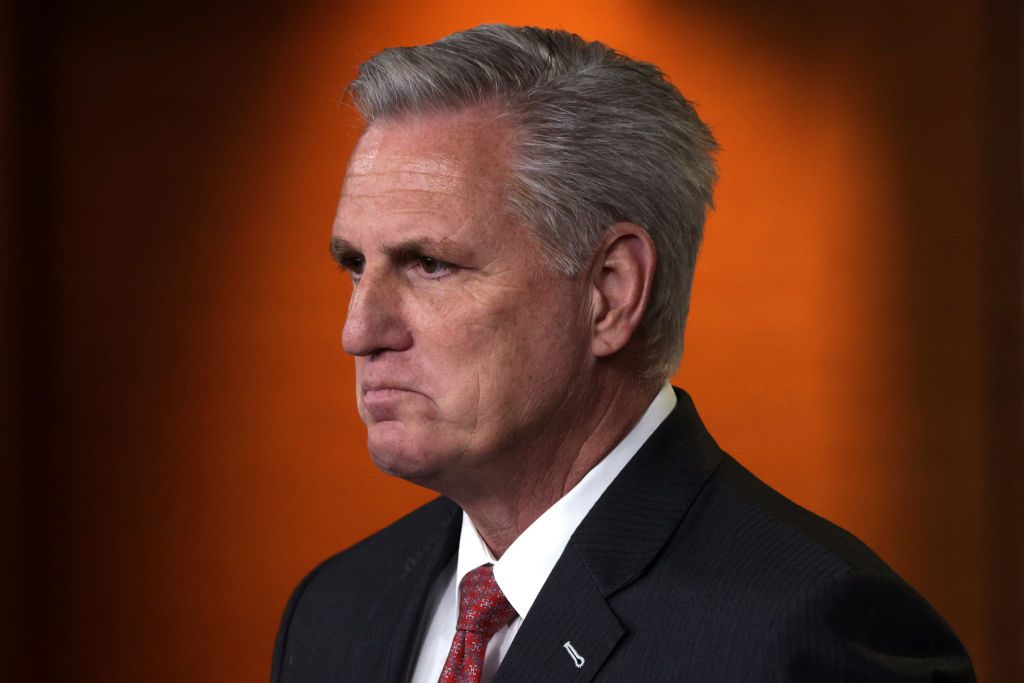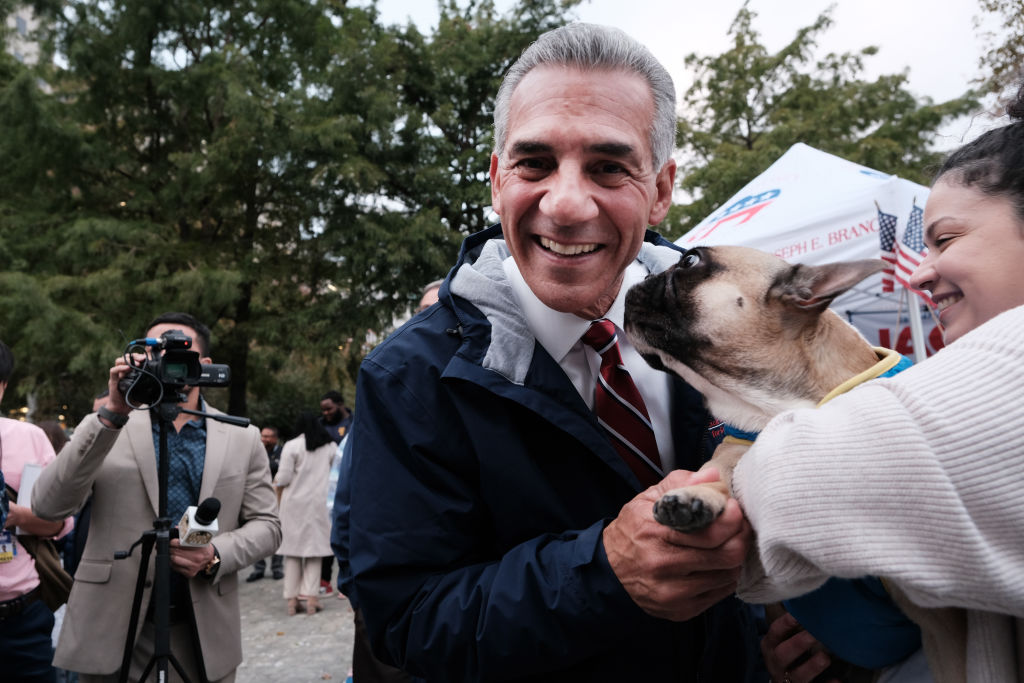If the returns from Tuesday are any indication, most American voters are breathing a sigh of relief.
Thanks to split-ticketing, third-party candidates and some abstentions, the forecasted Red Tsunami seems to have been more of a mild upswell.
Yes, poll workers are still counting votes in some races — and Georgia’s Senate runoffs will extend past Thanksgiving. But it seems Americans have once again voted for divided government by giving Republicans a slim majority in the House of Representatives.
Victorious politicians often talk about “trusting the voters,” but this time the voters really seem to have had a sense of humor. Just as they are deposing House Democrats, they are also tying would-be speaker Kevin McCarthy to the whipping post.
By dethroning Speaker Pelosi but denying McCarthy a commanding majority, they’ve ensured that he must negotiate with the conservative-leaning House Freedom Caucus if he is to hold the gavel.
The Freedom Caucus denied McCarthy once before, after Speaker John Boehner abruptly resigned in 2015. It began when they moved to vacate Boehner’s chair, essentially a vote of no confidence. Fighting the motion would have been contentious — and so rather than force the vote, Boehner resigned, leaving the path open for McCarthy. But McCarthy dropped out of the race when the Freedom Caucus put up another candidate, denying him the 218 votes he needed to secure the post. After some back-room dealing, it was Paul Ryan who ended up controlling the House.
In the years since, both McCarthy and the Freedom Caucus have changed.
Where the Freedom Caucus first organized around holding the line on federal spending — a wonky if unpopular stance — today’s Freedom Caucus is best understood as the Trump Palace Guard.
During the 2019 impeachment, the Freedom Caucus carried the torch for the president. McCarthy carefully allied with firebrand Ohio Congressman Jim Jordan to protect Trump. This Faustian bargain enabled McCarthy to work in lockstep with the Freedom Caucus, whipping Republicans against impeachment, ensuring it would be a partisan vote.
The partnership kept intraparty fighting to a minimum while Republicans focused on the 2022 midterms and retaking the House. When McCarthy unveiled his rather weak Commitment to America, freshman Freedom Caucus member Marjorie Taylor Greene joined McCarthy’s cast of extras, touring the country in support of the platform and praising McCarthy’s leadership.
But with the red wave failing to materialize, McCarthy’s path to the speaker’s gavel is narrow. He has little room for Republicans to defect or he will again fail to garner 218 votes.
Races remain uncalled, but that hasn’t stopped Freedom Caucus members from meeting this week to discuss the concessions they wish to extract from McCarthy in exchange for their backing.
Rumors have it that members want big changes to the rules package that will govern the House floor in the 118th Congress, including advance posting of bills to be voted on, promises that amendments to bills will get votes, and, crucially, a return of the ability to vacate the chair.
If McCarthy agrees to this, the sword of Damocles will hang over his head for as long as he remains speaker. If he doesn’t agree, he may never hold the gavel. Freedom Caucus members are actively considering running a challenger, taking a leaf from their 2015 playbook. And while an HFC candidate has yet to emerge, the most obvious would be Jordan, who has publicly backed McCarthy knowing that if he holds the Freedom Caucus together, Jordan will essentially be shadow speaker without the need for a contentious vote.
You wonder what McCarthy sees in this job. Even if he becomes speaker, most bills he would pass in a Republican House would either go on to die in a Senate controlled by Democrats or be vetoed by President Biden. It’s unlikely that the Freedom Caucus would agree to vote for measures that could garner support from across the aisle. Any ambitious legislative agenda McCarthy has will have to wait until he wins a larger majority, an opportunity that’s at least two years away. Under similar political circumstances, Speaker Boehner decided that discretion was the better part of valor.
Barring a meaningful legislative agenda, House Republicans will default to putting on political theater. Look for Freedom Caucus-led investigations and high-profile hearings featuring the political right’s favorite whipping boys: Hunter Biden, tech CEOs, and the National Endowment of the Arts.
This is cold comfort for Americans who clearly voted against fully empowering either party. The narrow margins of the 2022 elections should lead lawmakers to pursue consensus-driven agendas and moderate policies — if only to build confidence among independents for the next election cycle. Instead, House politics will remain entrenched along the partisan lines.

























